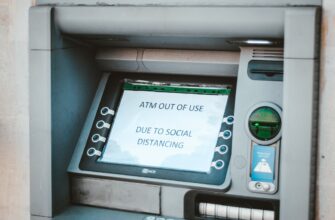- Understanding Airdrop Taxes and Penalties in India
- How Airdrops Are Taxed Under Indian Law
- Penalties for Non-Compliance with Airdrop Taxes
- Reporting Airdrops Correctly in Your ITR
- 4 Strategies to Avoid Airdrop Tax Penalties
- Frequently Asked Questions (FAQs)
- 1. Are all crypto airdrops taxable in India?
- 2. What if I transfer airdropped tokens immediately?
- 3. How do I value airdropped tokens for taxes?
- 4. Can I get penalized for old airdrops I forgot to report?
- 5. Do decentralized (DeFi) airdrops follow the same rules?
Understanding Airdrop Taxes and Penalties in India
Cryptocurrency airdrops – free tokens distributed to wallet holders – might feel like unexpected windfalls, but the Income Tax Department of India views them as taxable income. With increased crypto tax enforcement, failing to report airdrops properly can trigger severe penalties ranging from 50% to 200% of your tax due plus interest charges. This guide explains India’s airdrop taxation framework, penalty risks, and compliance strategies to protect your finances.
How Airdrops Are Taxed Under Indian Law
India’s Finance Act 2022 brought virtual digital assets (VDAs) like crypto airdrops under explicit taxation. Key principles:
- Income Classification: Airdropped tokens are taxed as “Income from Other Sources” at receipt (Section 56). The fair market value in INR when tokens hit your wallet determines taxable income.
- Tax Rates: Added to your total income and taxed per your applicable slab rate (up to 30% + 4% cess).
- Secondary Taxation: Selling airdropped tokens later incurs an additional 1% TDS under Section 194S and may qualify as business income or capital gains.
Penalties for Non-Compliance with Airdrop Taxes
Failing to report airdrop income invites layered penalties under the Income Tax Act:
- Late Filing Fees (Section 234F): ₹1,000–₹5,000 for missing ITR deadlines.
- Interest Charges (Section 234A/B/C): 1% monthly interest on unpaid tax from the due date.
- Underreporting Penalty (Section 270A): 50% of tax evaded for inaccuracies; 200% for proven concealment.
- Prosecution (Section 276C): Jail terms up to 7 years for willful tax evasion exceeding ₹25 lakh.
Example: If you omit ₹2 lakh in airdrop income from your return and fall in the 30% tax bracket, penalties could exceed ₹1.3 lakh (tax + 50% penalty + interest).
Reporting Airdrops Correctly in Your ITR
Follow these steps to ensure compliance:
- Calculate the INR value of tokens at receipt using exchange rates on airdrop date
- Report under “Income from Other Sources” in ITR-2 or ITR-3
- Maintain records of: Wallet addresses, airdrop dates, token amounts, and valuation proofs
- Disclose subsequent sales separately as capital gains or business income
4 Strategies to Avoid Airdrop Tax Penalties
- Track Religiously: Use crypto tax software to log airdrops and valuations automatically
- File Provisional Returns: If unable to determine exact value, file with conservative estimates before deadlines
- Claim Legitimate Deductions: Network fees or administrative costs may offset income (consult a CA)
- Voluntary Disclosure: Use updated return (Section 139(8A)) to report missed income before the department notices
Frequently Asked Questions (FAQs)
1. Are all crypto airdrops taxable in India?
Yes. Regardless of token value or whether you’ve sold them, airdrops constitute taxable income at receipt under Section 56. Even “worthless” tokens must be reported if they had measurable market value when received.
2. What if I transfer airdropped tokens immediately?
You still owe tax on the INR value at receipt. Quick transfers don’t eliminate the initial income tax liability, though subsequent gains/losses from disposal are calculated separately.
3. How do I value airdropped tokens for taxes?
Use the highest of:
a) Exchange price when tokens are credited to your wallet
b) Average market price across major Indian exchanges (like CoinDCX or WazirX) on that date. Screenshots and transaction hashes serve as proof.
4. Can I get penalized for old airdrops I forgot to report?
Yes. The department can reassess returns up to 3–10 years old (Section 149). Penalties apply unless you proactively file an updated return. Interest compounds annually on unpaid amounts.
5. Do decentralized (DeFi) airdrops follow the same rules?
Yes. The tax treatment applies equally to tokens received via DeFi protocols, NFT projects, or centralized exchanges. Documentation complexity increases with anonymous distributions – maintain detailed wallet logs.
Disclaimer: This content is for informational purposes only. Crypto tax regulations evolve rapidly – consult a chartered accountant specializing in VDAs for personalized advice.








